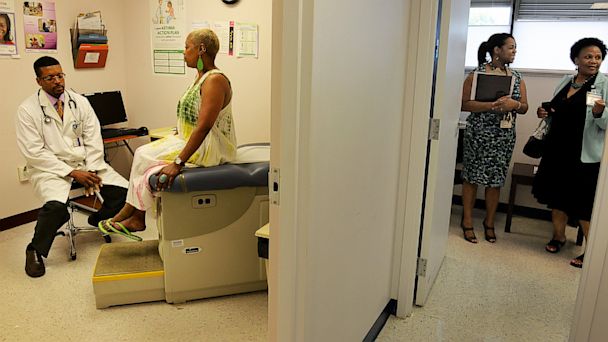Understanding Obamacare: What You Should Know
The Health Insurance Marketplace, the centerpiece of the 2010 Affordable Care Act (more commonly known as "Obamacare"), is set to launch two weeks from today - on October 1. This online insurance exchange is designed to help millions of previously uninsured Americans obtain affordable health care coverage.
Under the law, each state has three options: (1) Create and operate their own marketplace, called a state-based exchange; (2) Operate a State Partnership Exchange, in which the state operates certain functions of the exchange, allowing the state to tailor the marketplace to local needs; or (3) For state's that do not wish to establish their own exchange, the Federal government will establish and operate an exchange for them.

Bill O'Leary/The Washington Post via Getty Images
What state you live in determines how you will be able to participate in the new Health Insurance Marketplace.
Here are some resources to help you find out how to take part in an exchange in your state:
The Kaiser Family Foundation, which focuses on health care issues, provides consumers with comprehensive information on health care reform. Here is the Foundation's consumer resources page, which includes frequently asked questions and even a health care quiz:
http://kff.org/ACA-CONSUMER-RESOURCES/
This flow chart from the same foundation provides a how-to guide on the options and requirements for health coverage under Obamacare, including coverage through an employer, coverage through a health insurance exchange, and coverage through Medicaid:
The Kaiser Family Foundation also gives an up to date profile of each state, and allows you to look at each state's progress in setting up a health care exchange:
http://kff.org/state-health-exchange-profiles/
The Center for Medicare and Medicaid Services website lists a total of 25 states that have been conditionally approved for state based exchanges or conditionally approved to operate state partnership exchanges. The 18 conditionally approved state based exchanges are: California, Colorado, Connecticut, the District of Columbia, Hawaii, Idaho, Kentucky, Maryland, Massachusetts, Minnesota, Nevada, New Mexico, New York, Oregon, Rhode Island, Utah, Vermont, and Washington.
The seven states that have been conditionally approved to operate state partnership exchanges are: Arkansas, Delaware, Illinois, Iowa, Michigan, New Hampshire, and West Virginia.
For specific information about each state and their operation, visit the CMS website:
http://www.cms.gov/CCIIO/Resources/Fact-Sheets-and-FAQs/state-marketplaces.html
And residents of all other states can visit healthcare.gov to seek coverage: